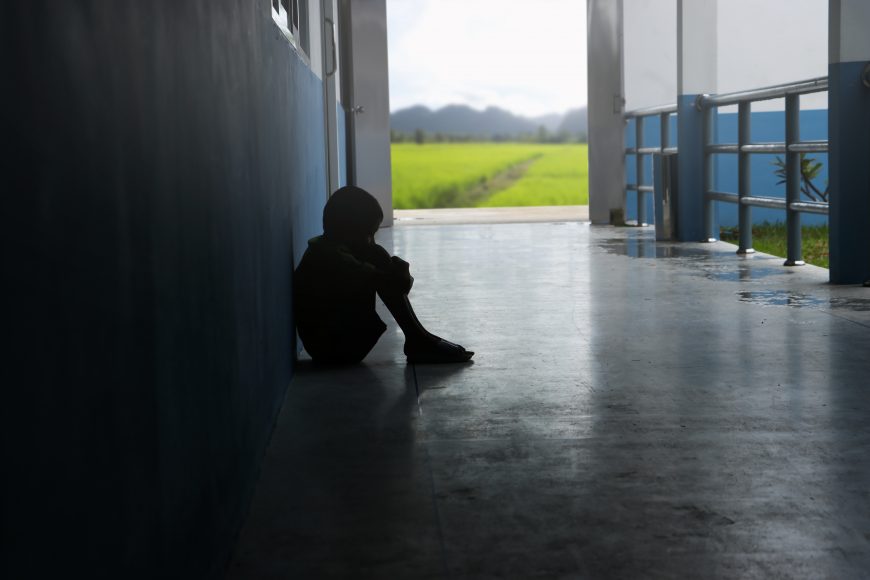Has COVID left you feeling lost about adolescent mental health? STLMom and Christi Brandenstein of CrossRoads Counseling Center are here to help.


Earlier this week, we aired our Facebook LIVE with Christi Brandenstein, MAC, LPC. She is a licensed professional counselor and the Executive Director of CrossRoads Counseling Center. Christi works with individuals, families, and couples at all stages of life, but she has a particular interest in working with children and adolescents. She truly enjoys helping them explore and tell their stories. She is also a mother to three adolescent girls, so her experience is vast both at work and home.
Our Facebook LIVE discussion focused on adolescent mental health, specifically the pandemic’s impact on tweens and teens. Christi shared so many valuable insights; we highly recommend watching her interview here. But in the meantime, we are sharing some of her wisdom with you!
How Kids Exhibit Mental Health Stress
We began by asking Christi for ways younger children may exhibit the stress, fear, and confusion of the pandemic compared to how older tweens and teens will exhibit the same emotions. Christi compared the pandemic to a collective trauma complicated by prolonged uncertainty. Our role as parents is to express that despite our struggles with COVID, we are in this together and will get through this together.
Younger kids may exhibit stress through regression. This is something as moms that we have all seen when our potty-trained children all of a sudden start having accidents again or our kids who independently explored begin to cling more to us. Younger kids also may show less tolerance and increased irritability.
For tweens and teens, when dealing with the prolonged uncertainty of the pandemic, we may see:
- some regression (especially in younger tweens)
- irritability
- isolation
- withdrawal
Basically, Christi encouraged us to think about how our kids typically handle stress and to “turn the volume up” on those behaviors. That is what you can expect to see at a time such as this.

How Can Parents Help?
One key is to put everything in context and to give grace. Understanding why our kids are struggling helps us react with more patience and tolerance. Ongoing encouragement is most valuable, and we should be more intentional in collecting good experiences together.
Kids often take their cues from us, so our attitude as parents as we deal with COVID is of the utmost importance. Allowing our values to drive us instead of being driven by fear helps create a positive space for growth. This pandemic is shaping us all, and the way we cope will set the groundwork for other stressful situations our kids may encounter.
Our Reactions Have an Impact
As COVID mandates and safe practices adjust, one of the more difficult things for us, as adults, to embrace is the differing views that others may have about the best way to handle the pandemic. We are all taking in information rapidly and digesting it to put together a plan for keeping our families as safe as possible. When our neighbors, friends, or other family members embrace an entirely different attitude and do not follow the path we have chosen, it is easy to get defensive. After all, we are ALL doing what we think is best, so when there are opposing views of what the BEST actually is, we feel a need to boost our views up, often by tearing other views down.
This is not productive behavior, and as mentioned earlier, our kids are getting their cues from us. How we react and respond is critical. The best thing we can do is remind ourselves and our children that we do not know the reasons behind other people’s decisions. We don’t know why when we follow one set of guidance, others chose a different set. For the sake of eliminating potential stress, let’s assume that other people’s choices come from good places FOR THEM. And if they differ from our choices, there must be a good reason. In addition, teaching our children the value of doing things out of compassion for our most vulnerable members is an important lesson.
Staying Connected
As parents, when life is unsteady, we create opportunities to connect. We are stronger together. We can immerse ourselves in their interests and spend time doing them together. Family meals can become a priority, family walks or game nights can be regularly scheduled, and we can even get our own Minecraft accounts to play along with our kids. Let’s spark our curiosity in what interests them. The more engaged we become, the more open the pathway is between us. This is a back-and-forth, however, so we should share parts of ourselves as well.
And those screens that we have become far too lenient about our kids using? Let’s use them to our advantage. We can use social media as a tool for connection whether we share funny memes, articles that we found interesting, or simply texting one another. As COVID restrictions tighten and loosen, we may rely on screens more. We saw that during quarantine. Focus on the positives that screen time brings us, such as FaceTiming with friends, Zoom calls with loved ones, or playing together as a family. As restrictions wane, we gradually replace that screen time with face-to-face interactions.
When Do We Seek Help?
Mental health is as important as physical health, and as parents, we need to be on top of it with our kids. How do we know when our children need more support than we can give? If our kids talk about death or suicide, this is a huge red flag, and we should reach out for help right away. Calling their doctor or 911, whatever we can do to keep them safe.

Less noticeable signs may include:
- negativity
- withdrawal
- changes in eating or sleeping habits
- obsessing over things they didn’t before (ceaseless worry)
- disconnecting from the things they used to enjoy
If these behaviors persist for more than two weeks, seek outside help. You can start with their general practitioner, a therapist or a psychiatrist (particularly a pediatric psychologist).
The bottom line is that “normal” is not a point— it is a range. And as parents, we need to be attuned when our children fall outside of that range so we can provide the support they need to recalibrate and find their balance again.
This is just a snapshot of the wisdom and insight that Christi Brandenstein shared with us. Be sure to watch the interview in its entirety. You will walk away with resources in your arsenal that you did not have before.










